Major Schools of Chinese Massage Therapy
Bone-setting massage
The massage techniques are especially for traumatic injuries or bone and muscular diseases that mainly focused on realigning and repairing tendons and ligaments, and restoring the mobility of joints. In addition, the massage techniques can soothe pain, relax stiff muscles, and reduce the swelling of lesions.
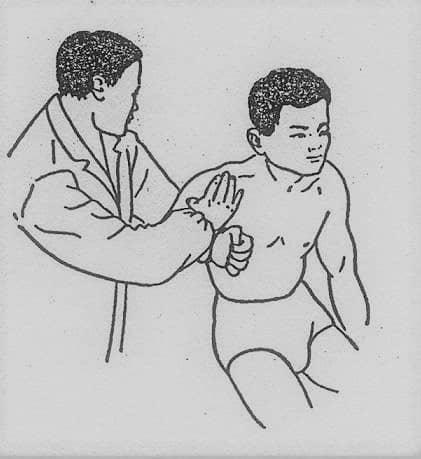 Bone-setting technique
Bone-setting technique
Acupressure massage
This type of massage is based on the meridians. Massage practitioners use the fingers to strike, press, knead and pinch on particular body points along the meridians, aiming to achieving effects that are similar to acupuncture. Acupressure massage is mainly used in the treatment of certain internal diseases, especially for those not suitable for acupuncture treatment. Based on accumulated experience, modern TCM has evolved special manipulations called anesthesia massage, which means that patients can undergo surgery while still in a conscious state. Other representative manipulations are spine pressing therapy and one finger meditation massage.
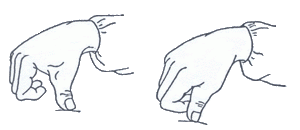
Acupressure technique
Pediatric massage
Pediatric massage usually targets children below six years old. Based on the development characters of children, practitioners select appropriate acupoint or regions to perform massage techniques, which are gentle, soft and delicate in nature. This type of massage comprises some unique techniques to treat children's diseases, such as chiropractic massage along the spinal column. It is usually applied for conditions like diarrhea, indigestion, constipation, nocturnal crying, bedwetting, fever, breathing problem, wry neck and crossed eyes.
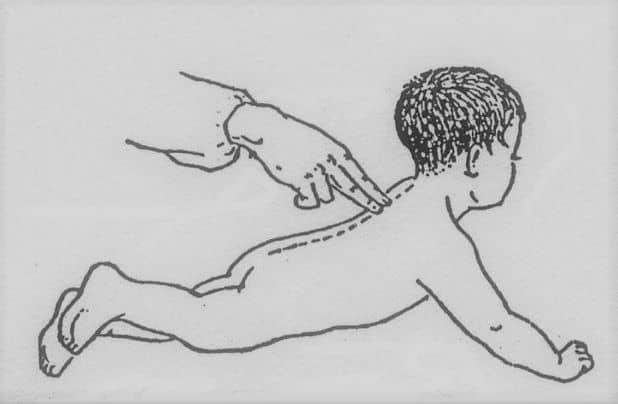
This is done by practitioners who are also qi-gong masters. Practitioners will first prepare themselves by entering a certain qi-gong state before giving the massage and then perform some general massage techniques like pushing or rubbing the body surface. It is claimed that while they are massaging, practitioners emit external qi (vital energy) to the patient's body for additional healing effect.
Treading massage
Instead of hands, practitioners use their feet to perform massage. During the process, practitioners use their feet to apply techniques such as kneading, pushing, treading and stepping with either a single foot, both feet, toes or heels on their patients' bodies. Common selected regions are the back or lower limbs, since these areas need deeper pressure. Individuals with a weakened body or osteoporosis are not indicated for this type of intense massage.
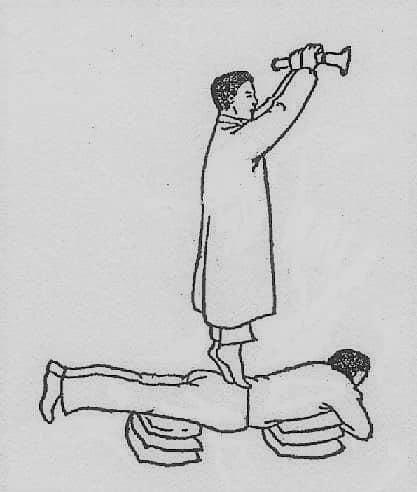
Foot massage
Foot massage, also called reflexology, is a method of applying finger pressure to the feet. TCM notices that there is a mirror site in the sole of the foot that directly connects to specific organs and structures throughout the body; thus, imbalances and disorders can be cured by massaging the correct reflex points on the soles.
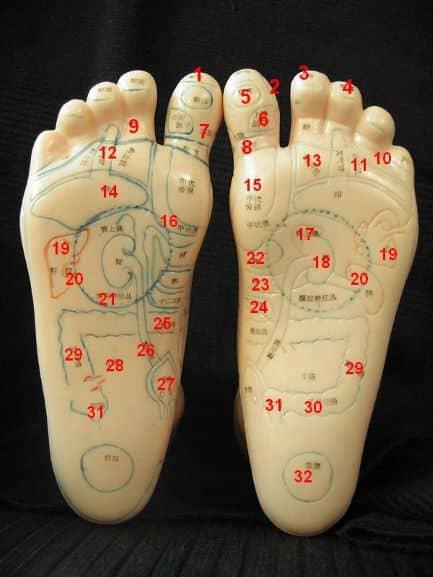
Slapping massage
This ancient method includes patting and beating the body surface with tools. Practitioners pat and beat regularly along the line of selected muscles, tendons or meridians. This is claimed to relieve certain spinal and limb problems.
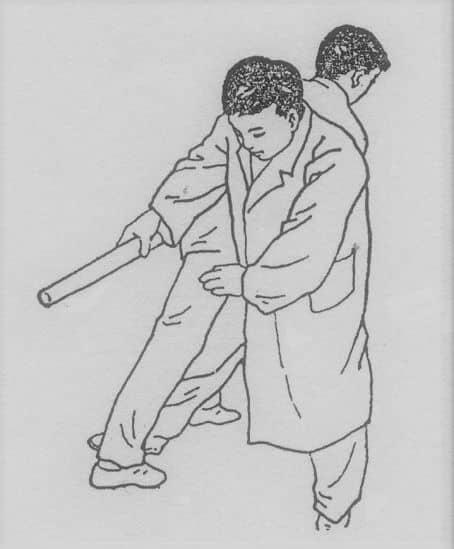
Sports massage
This is an important component of sports medicine. TCM specialists transform traditional techniques and incorporate them into a modern way of enhancing sports performance.- Before competition, particular manipulations are used to both to relax the muscles and to enhance muscular toughness, promoting the flexibility of joints and tendons. They also help to ensure that the athlete is in optimum condition both mentally and physically.
- In the middle of competition, the highly excitatory state, fatigue, spasms, stiffness and soreness are all beneficial for a massage.
- After competition, massage can also relieve fatigue and loosen muscle tightness, helping the athlete to recover quickly.
Health massage
These are simple massages that you can do yourself. The head, neck, check, abdomen, lumbar area and limbs are the most common areas for massage. Many massage or wellness centers provide courses in these kinds of massage for relaxation and refreshment.


